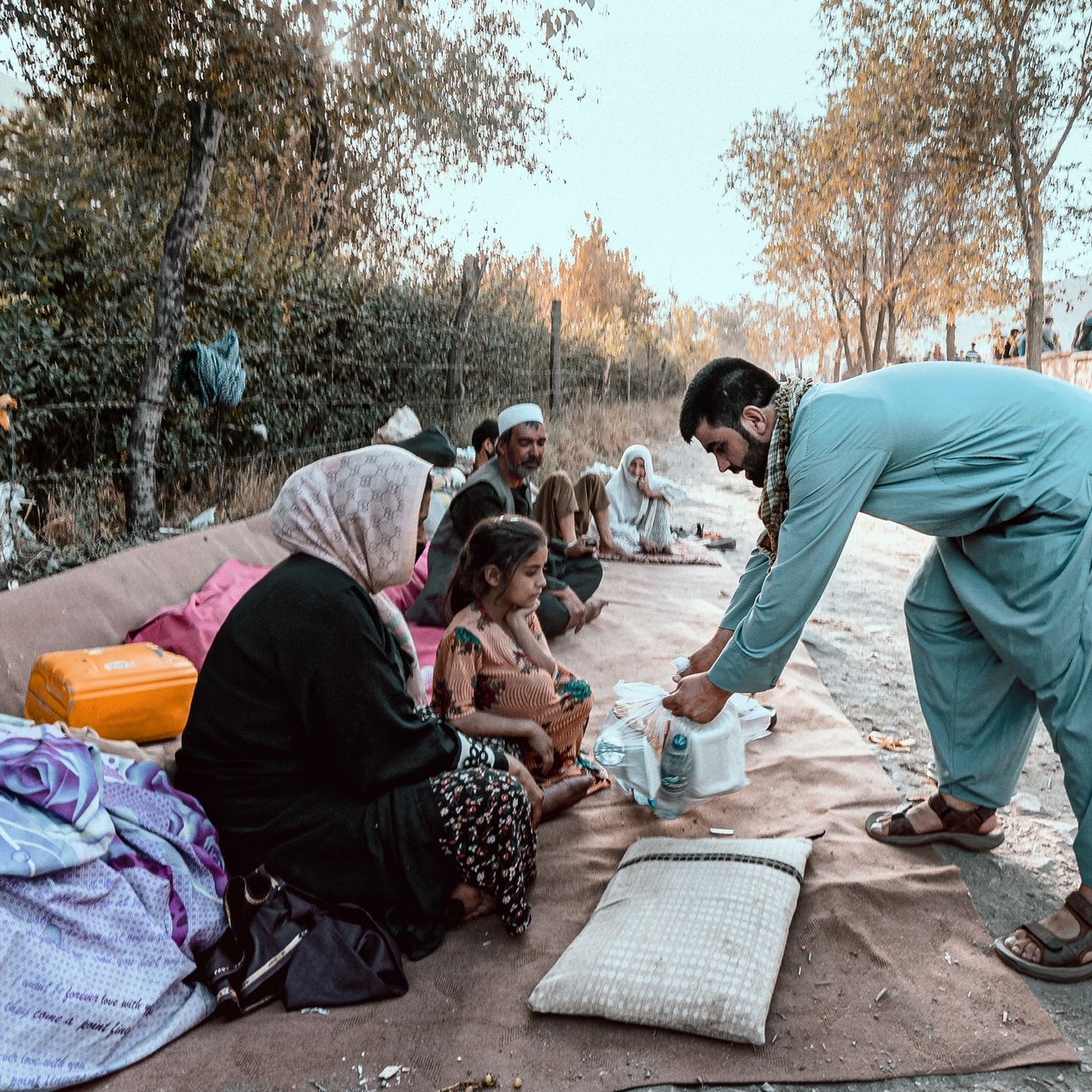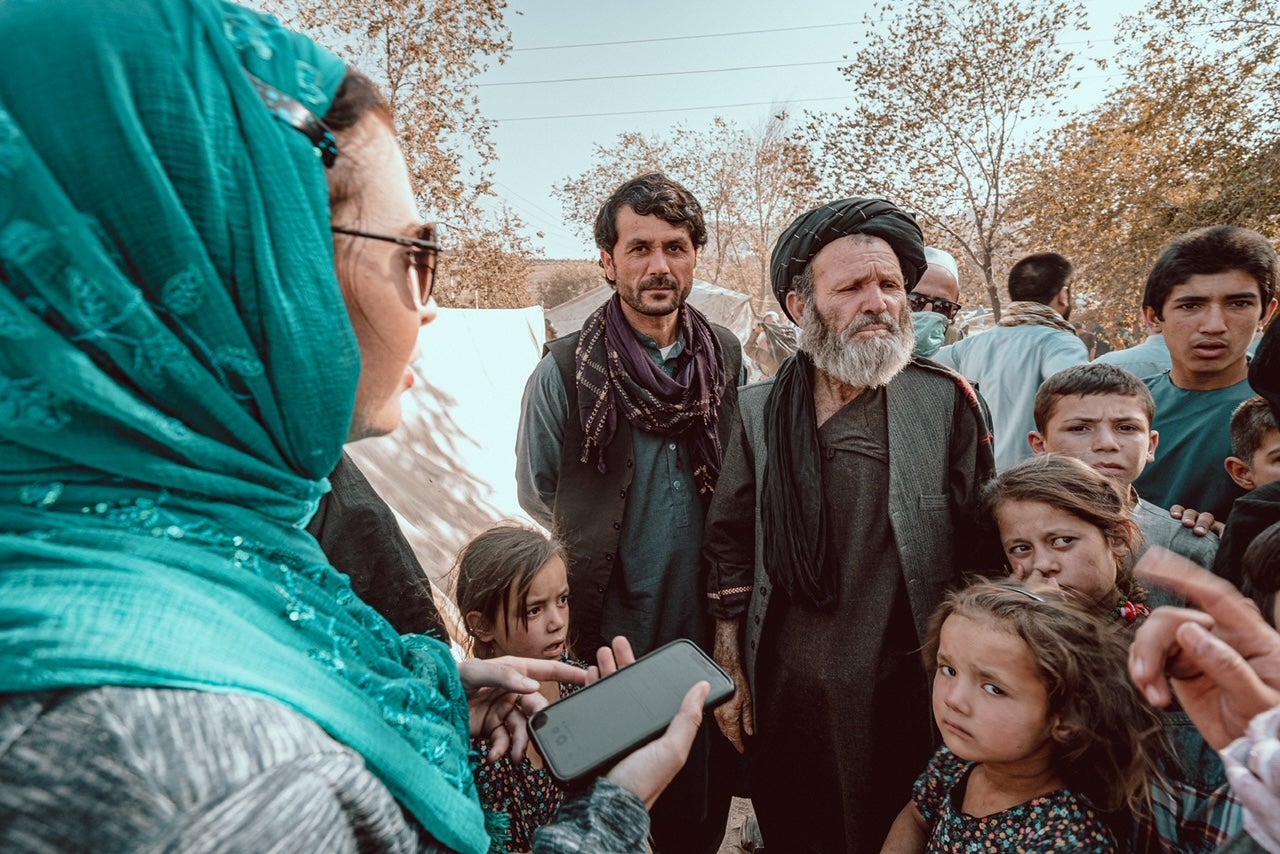I was in Afghanistan and I met the people Biden is taking money from now. It’s inhumane
$3.5 billion of frozen Afghan money will now be distributed to the families of 9/11 victims rather than given back to the people of Afghanistan. For sure, these American families have suffered — but there are humane alternatives

As snow blankets much of Afghanistan, and small children roam without as much as a warm coat and non-punctured shoes, the crisis that the United States and her allies have walked away from is as horrific as it is heartbreaking.
Millions of ordinary Afghans stood by and supported US military personnel in a war that was not their war because they believed in the American Dream of a better life. If it wasn’t bad enough that they were abruptly abandoned in summer 2021, they have just been dealt another unjust and humiliating blow.
Last week, President Joe Biden put forth a controversial plan for distributing around $7 billion in Afghan central-bank funds frozen in the United States, signing off on a proposal to give embattled Afghans half that amount in humanitarian aid and to distribute the remaining $3.5 billion to the families of September 11 victims.
That money is derived from the $9.4 billion in Afghan assistance, which was immediately halted when the US-backed President Ghani abandoned the country without a word on August 15 last year, paving the way for the Taliban to take the Presidential Palace. This all happened against a backdrop of a messy and disastrous American withdrawal following 20 years of war and occupation.
In light of the financial suspension – and the fact that the 39 million-strong country remained afloat thanks to an “artificial economy” created by the United States over the last two decades, whereby the vast majority of the population was sustained by foreign funding and US-backed government, military, NGO or contracting jobs that disappeared overnight — Afghanistan has now slipped into the world’s worst humanitarian crisis.
According to Biden’s order, the $3.5 billion will be placed into a trust fund for afflicted citizens, circumventing the Taliban’s top brass. However, double that was set aside for the Afghan people, and it belongs to them regardless of who is in power. It is more important now than ever for innocent civilians caught in the crossfire.
This is not to discount 9/11 families, who have legitimate legal claims against the Taliban, officially known as the Islamic Emirate of Afghanistan. These grieving families have been seeking financial compensation through the US legal system for years, yet there are some alternatives that would not directly deprive desperate Afghans and force them to pay for crimes committed by others.
The fact that Afghans themselves were not directly involved in September 11 is often lost in the narrative of war. George W. Bush chose to invade the deeply impoverished country after Taliban leader Mullah Mohammad Omar declined to handover al-Qaeda chief Osama bin Laden, due in large part to the notion of “Pashtunwali,” which places the safeguarding of guests as paramount. Omar’s loyalty was also unwavering because bin Laden was one of the few figures to back the otherwise completely pariah Taliban government, which was cut off from the international community.
Among the 19 hijackers involved in 9/11, 15 came from Saudi Arabia, two were from the United Arab Emirates, one was Egyptian, and one was Lebanese. And at the same time as Washington waged its war in Afghanistan, the Taliban trained, regrouped and resided mainly in Pakistan’s tribal terrain. Moreover, bin Laden was discovered and killed inside the Pakistani city of Abbottabad almost a decade later. All these nations combined receive over $2 billion in US foreign assistance annually. No one is talking about 9/11 families dipping into that pie.
The UNICEF World Food Program (WFP) now estimates that over 23 million Afghans are suffering from acute hunger. Nine million people are already starving. At least one million children are at risk of starvation as a result of the food, water, and sanitation crisis, the United Nations warned last month. Ninety percent of Afghans already live below the poverty line.
As a reporter who was based in Afghanistan, I have personally heard families debating whether or not to sell their children as a financial means of survival. Helpless and heartbroken, I watched as families sold daughters as young as nine to older men so they could receive the dowry payment to put food on the table. I have sat on cold hospital floors as mothers held their dying, severely malnourished newborns, while doctors gently informed them that their medicine supplies had run out.

For a country that claims to be at the forefront of human rights, where is the humanity? It is Afghans who paid the ultimate price for a war that cost the US $2.5 trillion, and now they are paying it once again: at the hands of an American administration that has the power to help but is trying to bury the mess.
I challenge my president to look into the eyes of a tiny Afghan child, covered in welts from the frost, with bones protruding from a delicate frame and hands cracked from daily work in the dust when they should be at school, and say they are not worthy of the appropriate amount of life-saving assistance.
Afghanistan’s people are all victims of this forever war, just like those who lost their lives on September 11, 2001. At the very least, let’s give them the dignity they deserve as survivors before they too become just another bland death toll statistic. The US ripped the Band-Aid off the bullet wound last August when it left so chaotically. Our only option now is to try to stop some of the bleeding.

Join our commenting forum
Join thought-provoking conversations, follow other Independent readers and see their replies